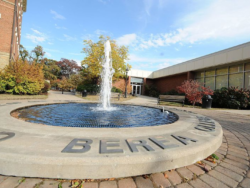David B. Porter, DPhil, Col, USAF (Ret), is a professor in exile in Berea, KY. He may be reached at [email protected].

“Any society that separates its scholars from its warriors will have its thinking done by cowards and its fighting done by fools.” — Thucydides (4th Century BCE) When thanked for my service, I respond saying that my 34 years in the Air Force were an honor. My service included extraordinary opportunities: a bachelor’s from the […]
Read More
MREs (Meals Ready-to-Eat), BDUs (Battle Dress Uniforms), and TDYs (Temporary Duty): Three-letter acronyms (TLAs) describe routine aspects of military life. These catchy labels can also reference broad epistemological contexts. They are quick and convenient, allowing users to purport to understand more than they actually do. Unfortunately, they are often misunderstood and obscure more than they […]
Read More
Nils Haug’s recent “Misadventures of a Reluctant Convert—Another Whimsical Memoir” essay described his come-to-Jesus moment as a student in South Africa. He concludes that during this experience, “Truth had found me, dramatically changed my life, and I was never the same. My real education was complete.” I’m a few years older than Nils, but identified […]
Read More
Editor’s Note: The essay below is a revised and edited version specifically tailored for Minding the Campus. It has been updated from its original publication on The Berea Torch. At a liberal arts college dedicated to the unfettered pursuit of truth, it is “baffling” that tribalism and ambiguity accompanied by a lack of concern for […]
Read More
Thomas Ricks’ First Principles: What America’s Founders Learned from the Greeks and Romans and How That Shaped Our Country (2020) uses brief biographies of our first four presidents to explain how their studies of the classics shaped the system of checks and balances central to American democracy. One could create a similar narrative for American […]
Read More
Oliver Wendel Holmes’ “great dissent” to Abrams (1919) begins: “Persecution for the expression of opinions seems to me perfectly logical. If you have no doubt of your premises or your power and want a certain result with all your heart, you naturally express your wishes in law and sweep away all opposition…” Holmes’ compelling subsequent […]
Read More